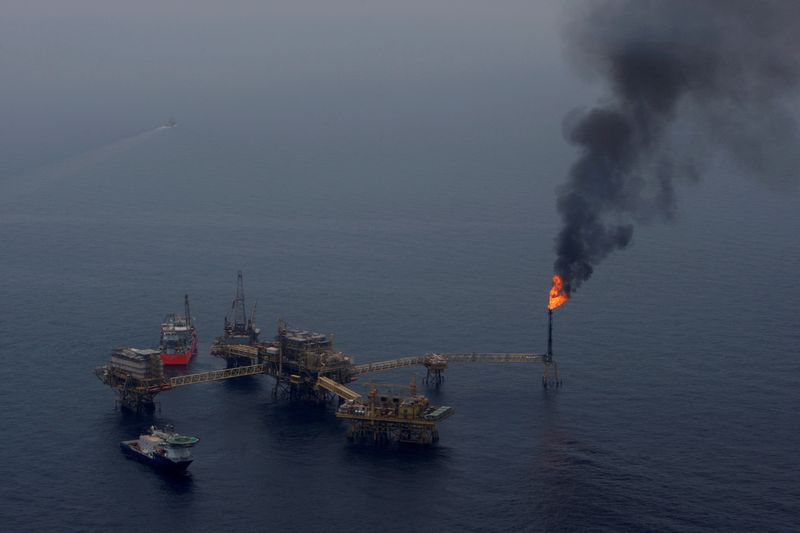By Tim Cocks
(Reuters) - Methane emissions have emerged as a top threat to the global climate, with scientists and policymakers calling for aggressive action to curb the output.
At last year's U.N. climate summit in Glasgow, Scotland, more than 100 countries pledged a 30% cut from 2020 methane emissions levels by 2030. But few have since carved out clear plans to reach that goal.
Instead, scientists using satellite monitoring are discovering new emissions sources, including leaks from oil wells and natural gas pipelines.
About 60% of the methane in the atmosphere comes from industrial sources, including oil and gas pipelines and drill sites, as well as feed lots, croplands and landfills.
Research increasingly shows that reducing emissions of methane is vital to keeping planetary warming to within 2 degrees Celsius above pre-industrial times to avert the worst impacts of climate change.
MATTER OF URGENCY
After being largely ignored for decades, scientists now know that methane is much more potent than carbon dioxide as a greenhouse gas in the short term, even though it lingers for only a decade in the atmosphere before breaking down while CO2 lingers for centuries.
Scientists normally compare the warming effects of methane and carbon dioxide over one century, and over that timescale methane is 28 times worse. Over 20 years, however, methane is 80 times worse, according to recent research.
That's important because the world is on track to exceed the 2015 Paris Agreement goal of limiting warming to less than 2 degrees in mere decades.
"If I thought we had 100 years to deal with climate change, I'd be an awful lot more relaxed about it," Mike Berners-Lee, expert and author on carbon footprints, said. "If you're interested in the climate impacts, we'll be experiencing in 2050 ... you'd be absolutely screaming about methane emissions."
Methane's frontloaded climate impact is doubly worrying because the world is closer than previously thought to crossing "tipping points" at which climate feedback loops kick in to make global warming self-perpetuating.
A study in September suggested that some of the events that could touch off those feedback loops, like the collapse of the Greenland Ice Sheet or the melting of Arctic permafrost, are imminent.
WHERE IT COMES FROM
Three-fifths of the world's estimated methane emissions are from human activity; the rest are from natural sources like swamps.
Of the human-caused emissions, two-thirds are from livestock farming and fossil fuels, with much of the rest from decomposing waste as well as rice cultivation, Climate and Clean Air Coalition data show.
But emitters have not kept good records, and scientists trying to improve them in the past decade have had a shock.
"Everywhere we looked, methane emissions turned out to be higher than agencies said they should be," said Robert Jackson, who co-authored a February study on methane's warming impacts. "That was true of oil and gas fields, landfills and feedlots."
While scientists can accurately measure the level of methane in the atmosphere, understanding where it is coming from is crucial for policymakers seeking to impose regulations that reduce the emissions.
WORSE THAN COAL?
Petroleum-producing companies and nations are lobbying hard for natural gas as a "bridge fuel" to renewables as the world undertakes a clean energy transition to fight climate change. Their argument: burning natural gas emits half as much carbon per kilowatt as coal.
But factor in gas industry leaks from drill pads, pipelines, compressors, and other infrastructure, and those gains can quickly be erased.
"There's a break-even point in how much methane is leaked for ... natural gas (to be) actually worse than coal for the climate," said Sam Abernethy, co-author of the February study.

World governments, including the United States, are introducing requirements that the oil and gas industry detect and repair leaks after studies showed leaks in the industry were a huge problem.
The European Union recently endorsed labeling some natural gas projects as "green" in a major boost to the industry.